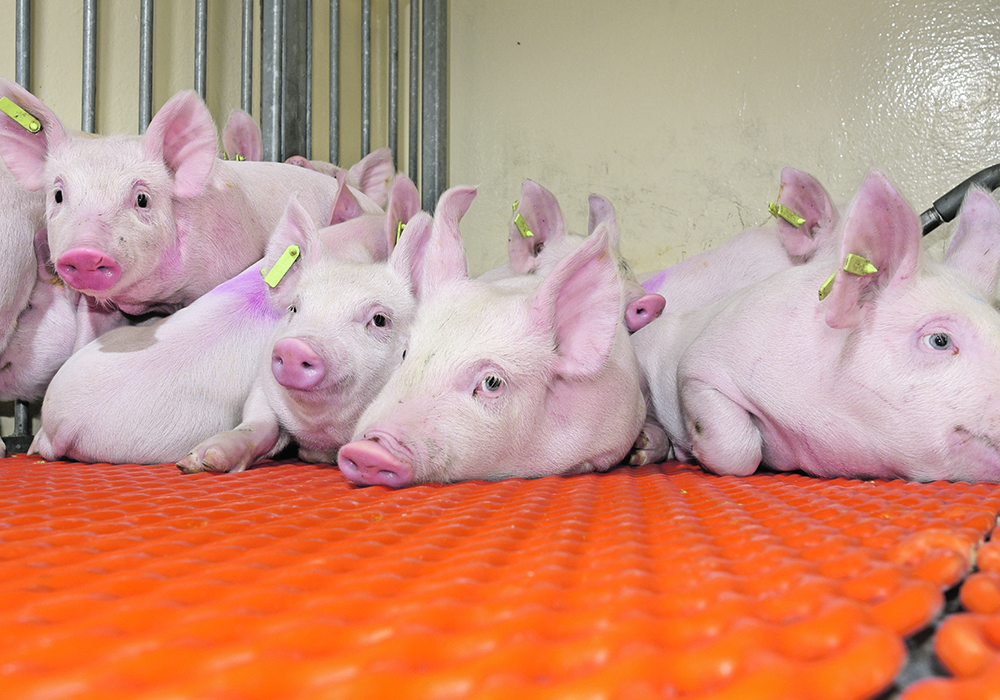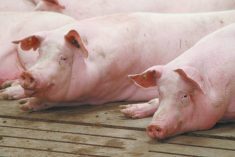The government wants hog farmers to cut zinc from piglet diets.
At the same time, government is making it hard for farmers to cut zinc from piglet diets.
Many hog producers find this frustrating.
Rick Bergmann, past-president of the Canadian Pork Council and a southern Manitoba hog inputs supplier, said companies are trying to bring zinc replacements into Canada, but slow and labourious Canadian Food Inspection Agency processes prevent them.
“The red tape and the cost and the inability for the CFIA to work efficiency (into) this model is the problem, and that is why some of these manufacturers have decided not to proceed, because of the cost and the time,” said Bergmann at the Manitoba Pork Council annual meeting April 13.
Read Also

Canadian Food Inspection Agency extends chronic wasting disease control program consultation deadline
Date extended for consultation period of changes to CWD program
Zinc has been banned from pig diets in the European Union and the United Kingdom. It is being phased out in Canada.
Zinc has played a central role in reducing diarrhea in piglets and reducing weanling deaths and lingering weak growth rates. However, zinc has also been linked to increasing antibiotic resistance in hog production, so eliminating it has become a priority for government health authorities and hog industry players around the world.
There are different ways to protect piglet health while eliminating zinc, but none are easy or perfect. Numerous non-zinc, non-pharmaceutical feed ingredients and additives are available around the world, but getting them approved for use in Canada has been vexing.
James Hofer said producers want to do their bit to reduce the threat of antibiotic resistance but find it frustrating when it takes years for natural and widely used zinc replacement products, such as oil of oregano, to be approved.
“There’s a roadblock when it comes to ingredients,” said Hofer, a long-time leader in Manitoba’s hog industry.
If zinc is banned and replacements aren’t available, piglet deaths will undoubtedly rise, many people in the industry believe.
Bergmann said many alternative ingredients are available and in use around the world, but many suppliers and manufacturers don’t bother with Canadian approval because of the byzantine process at CFIA. That leaves farmers with no good replacements for zinc.
“There are not a lot of options,” said Bergmann.
“We’ve been told no longer can we use (zinc,) but we better have solutions then. Otherwise, we’re going to have a big traffic jam.”
Bergmann said he can’t get his hands on a European product used in the EU and in the United States.
“They (farmers outside of Canada) have the ability to avoid using zinc,” said Bergmann.
“These ingredients are used in 30, 40, 50 countries around the world. It would make good sense for us to be able to have access to some of these tools as well,” said Bergmann.
Manitoba’s hog producers have asked the Canadian Pork Council to raise the issue with CFIA and other government authorities.
















